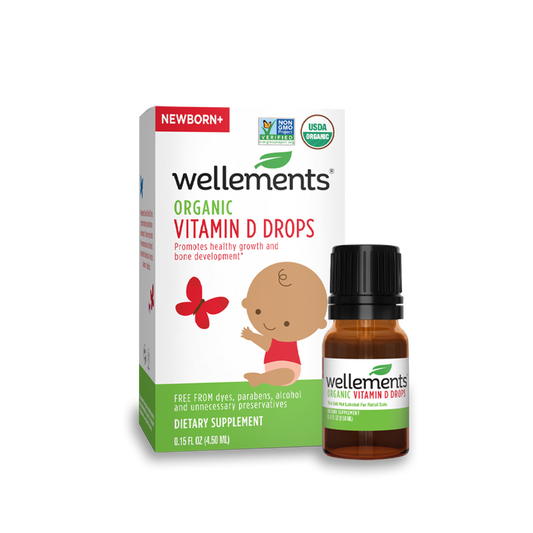Tips For Breastfeeding On a Vegetarian or Vegan Diet
| updated:Share

Contrary to popular myth, a vegan or vegetarian diet does not impact your ability to breastfeed your baby. If you are pregnant or trying to conceive and prefer plant-based nutrition, here's what you need to know about ensuring that you and your little one get the vitamins and minerals you need to thrive.
Can Vegetarians & Vegans Breastfeed?
As noted above, you can certainly breastfeed your baby as a vegetarian or vegan. In fact, a 2015 study published in the Journal of Nutrition and Health Sciences found that the majority of pregnant women who are vegetarian plan to breastfeed. In addition, the American Academy of Nutrition and Dietetics says that vegan and vegetarian diets provide adequate nutrition in all stages of the life cycle, including pregnancy, breastfeeding and infancy. Another 2015 study, this one by the American Society of Nutrition, found that following a vegetarian diet during pregnancy can lower the mother's risk for obesity and preeclampsia and the child's risk for diabetes and asthma.
Eating a variety of foods provides the nutrients for healthy infant growth and development. Planning ahead with education and guidance can help develop the foundation for a successful breastfeeding relationship.
Breastfeeding as a Vegetarian
A healthy diet that consists of fruits and veggies, whole grains, lean protein and low-fat dairy likely provides all the necessary nutrients for breastfeeding. Because a vegetarian diet is often lower in calories than a diet that includes meat, make sure you eat enough to breastfeed effectively. Aim for about 2,300 to 2,500 nutritious calories a day.
Consider these other breastfeeding tips for vegetarian moms:
- Eat iron-rich foods such as tofu, spinach and beans.
- Focus on nuts, seeds and grains to get enough zinc.
- Try a variety of different types of protein, including soy products, nut butters and legumes.
- Drink plenty of fluid to stay hydrated; keep a water bottle on hand when you feed your little one.
Breastfeeding as a Vegan
If you avoid dairy and other animal products as well as meat, review your calcium intake. Without sufficient calcium to supply your breast milk with this bone-building nutrient, your body will draw it from your own calcium stores and impact the health of your bones.
In addition to adequate calcium, consider these tips when breastfeeding with a vegan diet:
- Avoid deficiencies in zinc, iodine, DHA, iron and vitamin B12, which can result in serious health issues including failure to thrive. Vegans may require a supplement to get enough of these nutrients, particularly B12.
- Consider extended breastfeeding if you plan to feed your child a vegan diet as he or she grows. Doing so provides an additional infusion of essential nutrients.
- Talk to a nutritionist if you aren't sure where to start building a well-rounded vegan diet. He or she can help create a meal plan that supports your nutritional needs as a breastfeeding mom.
How To Get Enough Essential Vitamins
Despite your best efforts, it can be difficult to get all the nutrients you and your baby need from your diet alone. As a guide, experts recommend getting two to three daily servings of protein along with about 1,000 daily milligrams of calcium, 10 mg of iron, 12 mg of zinc, 600 IU of vitamin D, 1,500 mg of the omega-3 fatty acid DHA and 150 mcg of iodine if you are breastfeeding. Adding fortified foods and supplements can help fill in the gaps and optimize the nourishment your child receives from your breast milk.
The Wellements line of organic baby care products includes dietary supplements for newborns, infants and toddlers. If you're breastfeeding as a vegetarian or vegan, your baby may benefit from our vitamin D, iron or multivitamin drops.
4.1 /
5.0
(90)
90
total reviews
Vitamin D Drops
Sale price
$11.99



